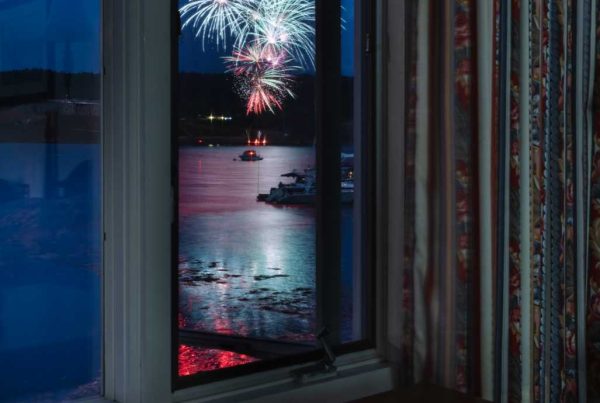“L’attesta,” the debut feature from Italian director Piero Messina opening today in Boca, is bookended by processions, each one carrying the gravity of life and death. The opening is a wordless church funeral, with a solemn, slow-motion parade of congregants paying their respects to an unidentified body. The camera fades to black after every shot, the images slipping away like elusive memories. It lingers the longest on the familiar, pained face of Juliette Binoche, whom we soon realize plays the deceased’s closest survivor.

At the end, Binoche’s character, Anna, is again the only discernable face in a somber Easter parade down the illuminated streets of her Italian village, meeting the implacable gaze of white-hooded worshippers staring, hauntingly, through eyeholes. It looks as if they’re judging her, just as the audience might have been doing for the previous 90 minutes or so—though in her excruciating position, it’s impossible to know how we’d respond.
We soon deduce that the silent funeral at the movie’s opening is for Anna’s teenage son Giuseppe, whose spirit looms large over the film’s proceedings. But Anna can’t bring herself to say the words, let along acknowledge the loss emotionally, even when she’s put to the test: Just days after the service, Giuseppe’s girlfriend Jeanne (Lou de Laage, a rising star in French cinema) arrives at Anna’s capacious home, intending to reconcile with Giuseppe after a rough patch.
Rather than admit the truth, Anna avoids, evades, occludes—stringing Jeanne along for what feels like weeks of excuses for her son’s absence and, ultimately, enjoying the company of a daughter she never had. The naïve Jeanne likely succumbs to her own denial after a while, leaving unreturned message after unreturned message on Giuseppe’s cell phone while waiting, incredulously, for her boyfriend to arrive (In Italian, “L’attesta” translates to “The Wait”).

Based, surprisingly, on a pair of works by absurdist playwright Luigi Pirandello, “L’attesta” is about the lies we tell others and ourselves in order to cope with incomprehensible loss. It’s a film anchored by its unsaid revelations, the kind delivered only in the nuance of the actors’ faces, gestures and carriage. Binoche’s worry lines hide deep reservoirs of grief—her inopportune laughing jags and spurts of maternal energy offering an escape from reality and responsibility. De Laage, with her fair skin, puffy lips and easy smile, is like every deer that’s ever stared blindly into a pair of headlights, unwilling to see or accept the truth that’s in front of her.
The director, Messina, was an AD on Paolo Sorrentino’s Oscar winner “The Great Beauty,” and he’s a clear mentee of the older director. Eschewing the quirky, Felliniesque grotesqueries that undercut Sorrentino’s films, Messina’s compositions and camera movements glisten with grace and hypnotic splendor, resulting in the sort of shots you’ll remember next week, maybe even next year.
But for all of its arresting visual beauty, “L’attesta” is mostly propelled by absence, by negation, by darkness, by the empty spaces between things. In one of the film’s first scenes, Anna’s butler (Giorgio Colangeli) covers her windows in mourning, blocking out sunbeams ray by ray. “I’m used to seeing some parts of my body only in the dark,” Anna tells Jeanne, when the latter asks if she’d like a dip in the lake. It’s only by accepting the light that this tortured soul might just experience her own Easter rebirth.
“L’attesta” opens today at Living Room Theaters at FAU, 777 Glades Road, Boca Raton.







